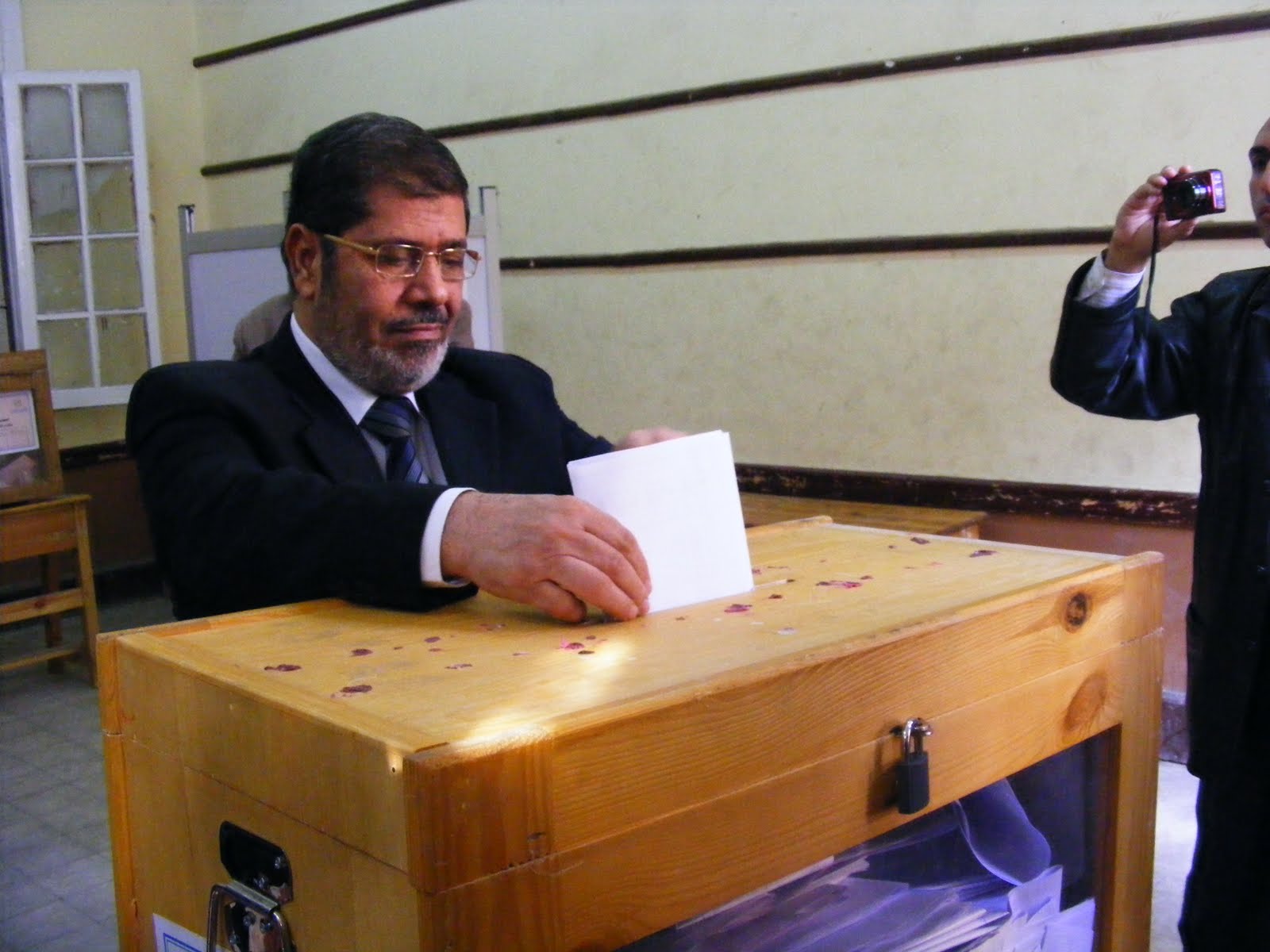Latest NEWS
- Aswat Masriya, the last word
- Roundup of Egypt's press headlines on March 15, 2017
- Roundup of Egypt's press headlines on March 14, 2017
- Former Egyptian President Hosni Mubarak to be released: lawyer
- Roundup of Egypt's press headlines on March 13, 2017
- Egypt's capital set to grow by half a million in 2017
- Egypt's wheat reserves to double with start of harvest -supply min
- Roundup of Egypt's press headlines on March 12, 2017
New Brotherhood candidate for Egypt vote may struggle

The man thrust unexpectedly into the limelight as the Muslim Brotherhood's candidate to lead Egypt is a mild-mannered figure whose low public profile may leave him struggling against more forceful rivals vying for the votes of Islamists and others.
Mohamed Mursi, the head of the Brotherhood's political party, was the movement's backstop candidate for next month's presidential election until its first choice, millionaire businessman Khairat al-Shater, was disqualified.
The Presidential Election Committee threw out his bid because of past convictions handed down under ousted President Hosni Mubarak that were widely seen as politically motivated.
On Wednesday, it was Shater who spoke at a Brotherhood news conference, railing against the decision and calling for mass Friday protests against the move that may also dim the chances of the Brotherhood securing the top post.
Mursi, now officially the movement's man of the hour, was nowhere to be seen.
Mohamed Habib, former deputy leader of the Brotherhood, described Mursi as a far weaker candidate than Shater, saying he lacks his charisma, has virtually "zero" ties with other political forces in Egypt and is little known in society.
"Beyond the fact that I oppose the idea of the Brotherhood running in the first place, they are now fielding the wrong man for the wrong job at the wrong time," Habib, who quit the movement last year over his objections to its management of the post-Mubarak era, told Reuters.
The Brotherhood is now the biggest bloc in parliament and it chaired an assembly that had begun drafting a new constitution until liberals walked out, complaining it was too dominated by Islamists.
Shater brushed aside the suggestion that Mursi, head of the Brotherhood's Freedom and Justice Party (FJP), was merely a stopgap and pledged his full support - while saying little about Mursi's presidential credentials.
"All of us in the Brotherhood are a group, and all of us in the party are a group. We hold responsibility for defending a programme," Shater said.
Mursi's measured, calm style contrasts with the energy and impatience that emanates from Shater, but occasional bursts of eloquence have earned Mursi respect as a parliamentarian.
Many Egyptians remember an impassioned speech by Mursi lambasting official incompetence behind Egypt's worst rail disaster in 2002, which brought a rare flash of excitement to a rubber-stamp parliament stuffed with Mubarak supporters.
He lost his seat in the next election in 2005.
Like other top Brotherhood officials, Mursi tends to hedge his policy preferences within the general conviction that a more pious society will be a more successful, less corrupt one, while reassuring the country's large Christian minority that their rights should be protected.
"What we see in the deterioration, the problems and the crushing crisis we are living through in all areas proves beyond a doubt that we need Islam," he told Egypt's 2000-2005parliament, while showing a distaste for confrontation.
"We don't imagine that all laws regarding the application of Sharia (Islamic law) would be presented to the assembly at once for discussion and that they would be approved."
Mursi, the head of engineering at a university in the Nile Delta, was among the leading Brotherhood officials who last year were busy reassuring Egyptians that the group would not seek the presidency or monopolise state institutions as Mubarak did.
Mursi's line chimed with the long-dominant conservative current within the Brotherhood which favoured biding its time, convinced that its goal of an Islamic state would ripen and fall into its lap without the need for political confrontation.
But a reformist tendency that favours a more assertive drive for power appears to be in the ascendant since the FJP swept Egypt's first parliamentary election since Mubarak was overthrown in February last year.
Mursi is competing for the presidency against political heavyweights like Amr Moussa, an ex-foreign minister, and moderate Islamist Abdel Moneim Abol Fotouh who have been working for months to build a support network that will test even the Brotherhood's formidable campaign machine.
Abol Fotouh was expelled from the Brotherhood last year when he decided to launch his own campaign and has been reaching out to liberal voters with a muscular defence of civil freedoms.
Moussa, former head of the Cairo-based Arab League, describes himself as a liberal nationalist and could appeal to secular-minded Egyptians worried about the gains made by Islamists since Mubarak was toppled.
Brotherhood colleagues may see Mursi as a safe pair of hands given his background as a spokesman and electoral strategist for the movement, which spent years gingerly skirting a ban from official politics by fielding its candidates as independents.
Mursi lost his seat in 2005 after dominating the election campaign in his home town of Sharqiya but losing in a run-off vote that he claimed was rigged.
(Additional reporting by Shaimaa Fayed, Tamim Elyan and Tom Perry Editing by Maria Golovnina)










